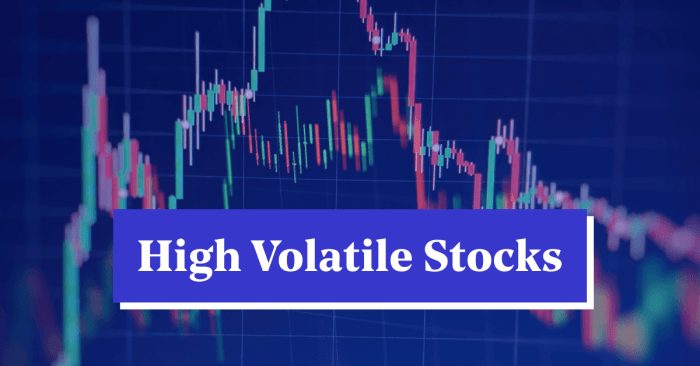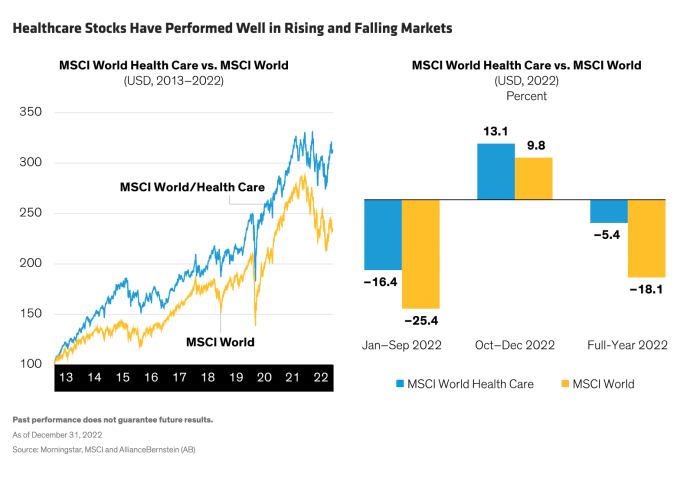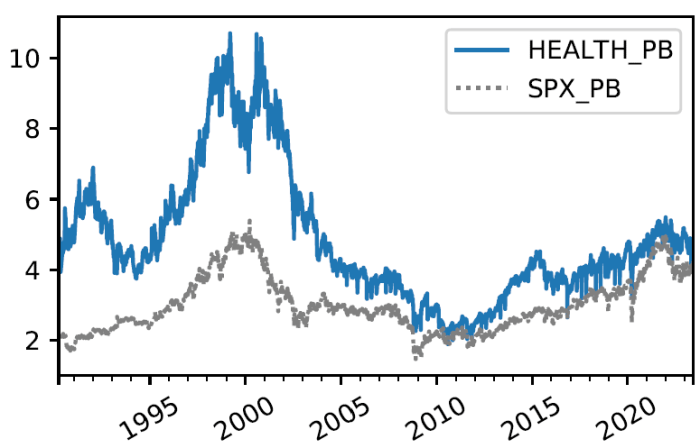What Influences Share Price Volatility in Healthcare Stocks?
Delve into the intricate world of healthcare stocks and discover the driving forces behind their share price volatility. From regulatory changes to market sentiment, this topic unveils the hidden dynamics shaping this sector.
Explore the various factors that create ripples in the stock market and influence the healthcare industry in ways you never imagined.
Factors Influencing Share Price Volatility

The share price volatility of healthcare stocks can be influenced by various factors that play a crucial role in determining market movements and investor sentiments.Market sentiment, regulatory changes, earnings reports, clinical trial outcomes, mergers/acquisitions, investor behavior, and macroeconomic indicators all contribute to the fluctuations in share prices within the healthcare sector.
Regulatory Changes
Regulatory changes, such as new healthcare laws or policies, can significantly impact share prices. Positive changes, like regulatory approvals for new drugs or treatments, can lead to a surge in stock prices, while negative changes, such as increased regulations or restrictions, can cause a decline.
Earnings Reports
Earnings reports play a vital role in determining the financial health of healthcare companies. Strong earnings often result in higher stock prices, while disappointing earnings can lead to a drop in share value. Investors closely monitor these reports to assess the company's performance and future prospects.
Clinical Trial Outcomes
The outcomes of clinical trials for pharmaceutical or biotech companies can have a substantial impact on share prices. Positive results from trials can boost investor confidence and drive up stock prices, while negative results can lead to a decline as investors reassess the company's potential.
Mergers/Acquisitions
Mergers and acquisitions within the healthcare sector can also influence share price volatility. News of a potential merger or acquisition can lead to speculation and fluctuations in stock prices. The impact of such events depends on various factors, including the terms of the deal and the strategic implications for the companies involved.
Investor Behavior and Market Sentiment
Investor behavior and market sentiment play a crucial role in determining share price volatility. Sentiment can be influenced by factors such as news, economic indicators, geopolitical events, and overall market conditions. Positive sentiment can drive stock prices higher, while negative sentiment can lead to a decline.
Macroeconomic Indicators
Macroeconomic indicators, such as interest rates, inflation rates, and GDP growth, can also impact share prices in the healthcare sector. Changes in these indicators can affect investor confidence, consumer spending, and overall market conditions, leading to fluctuations in stock prices.
Impact of Regulatory Environment

The regulatory environment plays a crucial role in influencing the volatility of healthcare stocks. Changes in healthcare regulations, drug approvals, and government policies can have a significant impact on the share prices of healthcare companies.
Effect of Regulatory Changes
Regulatory changes can lead to fluctuations in healthcare stocks as investors react to new guidelines and requirements. For example, if a new drug approval process becomes more stringent, it could delay the release of a company's new product, causing a drop in stock prices.
On the other hand, favorable regulatory changes may boost investor confidence and lead to a surge in stock prices.
Past Instances of Regulatory Impact
- In 2015, when the FDA rejected a key drug application from a major pharmaceutical company due to safety concerns, the company's stock plummeted by 20% in a single day.
- In 2017, when the Affordable Care Act faced potential repeal, healthcare stocks experienced volatility as uncertainty loomed over the future of the healthcare industry.
- Conversely, in 2018, when the FDA expedited the approval process for a breakthrough cancer treatment, the stock prices of the biotech company behind the drug soared by 50% in a week.
Company Specific Factors
Company-specific factors play a crucial role in influencing the volatility of healthcare stocks. These factors can range from the company's product pipeline to its financial performance metrics.
Product Pipeline and Revenue Growth
A company's product pipeline, which includes upcoming drug approvals or launches, can significantly impact its share price volatility. Positive news regarding successful clinical trials or regulatory approvals can drive the stock price up, while setbacks in the pipeline can lead to a decline.
Similarly, strong revenue growth trends can attract investors and boost confidence in the company's future prospects, leading to lower volatility.
Management Changes and Competitive Landscape
Changes in senior management, such as the appointment of a new CEO or key executives, can introduce uncertainty and affect investor sentiment. Additionally, the competitive landscape plays a crucial role in determining share price volatility. Increased competition or the loss of market share to rivals can lead to higher volatility as investors reassess the company's position in the industry.
Financial Performance Metrics
Financial performance metrics like earnings per share (EPS) and price-to-earnings (P/E) ratio are closely monitored by investors to gauge a company's profitability and valuation. Positive earnings surprises or improvements in profitability can boost investor confidence and reduce share price volatility.
On the other hand, disappointing financial results or high valuation multiples can lead to increased volatility as investors adjust their expectations.
Market Sentiment and Investor Behavior
Market sentiment and investor behavior play a crucial role in determining the volatility of healthcare stocks. The perceptions, emotions, and attitudes of market participants can lead to fluctuations in stock prices, creating both risks and opportunities for investors.
Role of Institutional Investors
Institutional investors, such as hedge funds, mutual funds, and pension funds, have a significant impact on healthcare stock prices. Their large positions and trading volumes can influence market sentiment and drive short-term price movements. Institutional investors often have access to extensive research and resources, allowing them to make informed decisions that can impact stock volatility.
Role of Retail Investors
Retail investors, including individual traders and small investors, also play a role in shaping market sentiment towards healthcare stocks. Their collective actions, driven by factors like news, social media trends, and online forums, can lead to rapid price changes based on sentiment rather than fundamental analysis.
Retail investors' behavior can contribute to increased volatility in healthcare stocks.
Role of Algorithmic Trading
Algorithmic trading, or automated trading based on predefined criteria and mathematical models, has become increasingly prevalent in the financial markets, including healthcare stocks. These algorithms can execute trades at high speeds and volumes, reacting to market sentiment, news, and price movements.
The use of algorithms can amplify short-term fluctuations in stock prices, especially in response to sudden shifts in investor behavior.
Closing Summary

In conclusion, the puzzle of share price volatility in healthcare stocks comes together with a tapestry of regulatory impacts, company-specific factors, and investor sentiments. Unravel the mysteries of this dynamic sector and stay informed for a successful investment journey.
FAQ Insights
What role does market sentiment play in healthcare stock price volatility?
Market sentiment can heavily sway healthcare stock prices as positive or negative perceptions influence investor decisions, leading to fluctuations.
How do regulatory changes impact healthcare stock prices?
Regulatory changes can cause significant shifts in healthcare stock prices as they alter the operating landscape and investor confidence.
What are some company-specific factors that affect healthcare stock volatility?
Factors like product pipeline strength, revenue growth stability, and management changes can all contribute to fluctuations in healthcare stock prices.




